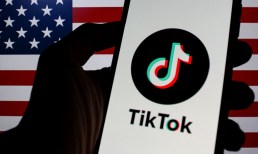“Every brand has to figure out their own DNA and figure out how they find success in beauty because it is a challenging space to get a share-of-mind of the consumer today. And so, for us, it’s been really doubling down on our roots — and our differentiation,” said Ganjoo in an interview with PYMNTS.
Finding your DNA means finding the pain point you solve and resonating with the audience you’re targeting. For Kulfi, that differentiation meant standing out as experts in undertones.
Read more: Figure Out Your DNA: Kulfi Beauty Founder’s Secret to Engagement
Fenty Beauty has essentially created the playbook for this strategy.
Founded by Rihanna, Fenty Beauty boasts an annual revenue of $582.8 billion and over 12 million Instagram followers.
Advertisement: Scroll to Continue
One of the primary drivers of the brand’s success — beyond its celebrity founder — is its extensive and diverse lineup of makeup shades. This comprehensive range of foundations caters to a wide spectrum of skin tones, fostering inclusivity and effectively tackling a longstanding concern within the beauty industry. This approach has struck a chord with a broad and diverse audience.
Considering this strong consumer resonance, Fenty Beauty has chosen to increase its accessibility and is currently available at Ulta Beauty outlets located within Target stores.
“The goal has always been to bring Fenty Beauty to as many people as possible. I’m excited to introduce the Fenty Snackz and give Ulta Beauty at Target guests a new way to experience our brand,” said Rihanna in a press release.
Ulta Beauty at Target has introduced “Fenty Snackz,” a collection featuring Fenty Beauty’s top-selling products in mini and set formats. This allows consumers to experience the essence of the Fenty Face and achieve a transformative glow in an engaging and novel manner.
Niche Can Mean Inclusivity
The idea that beauty should be accessible and welcoming to everyone — regardless of their age, gender, ethnicity, body type, or skin color — has gained significant traction.
As a result, smaller, specialized beauty brands have been gaining popularity in recent times, posing a challenge to the longstanding dominance of larger, more established cosmetic companies. One of the fascinating qualities of these niche beauty brands is their ability to both represent and advocate for inclusivity, which has proven to be a key driving factor in their success.
As an example, niche brands might concentrate on developing products customized for individuals with particular skincare requirements, specific skin tones, or unique beauty preferences. In doing so, they connect with and attract customers who have often experienced exclusion within the beauty industry.
Furthermore, niche beauty brands often foster strong communities around their products. This sense of belonging can be particularly appealing to individuals who don’t conform to mainstream beauty standards or have unique beauty requirements.
“Our consumer insights and member data confirm the importance of physical shopping in beauty. More than 75% of our members choose to transact with us only in stores, and yet we know many of these members use our digital platforms for discovery, try-on and inspiration,” said Ulta Beauty’s Chief Executive Officer Dave Kimbell during the beauty retailer’s second quarter earnings call on Thursday (Aug 24).
In June, Nicole Bernhardt, head of Ultamate Rewards at Ulta Beauty also told PYMNTS that 95% of Ulta Beauty’s sales are attached to its loyalty program, which is a testament to the ability of data to drive success.
With that, through Ulta Beauty in Target, Fenty Beauty has an opportunity to get in the baskets of dedicated customers who are more inclined to make repeat purchases.
Read more: PYMNTS Summer Loyalty Series: 95% of Ulta Beauty Sales Driven by Loyalty Members




